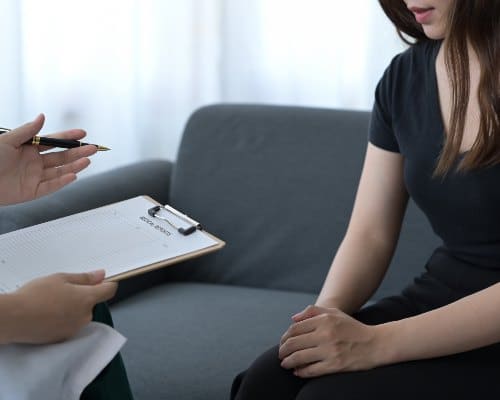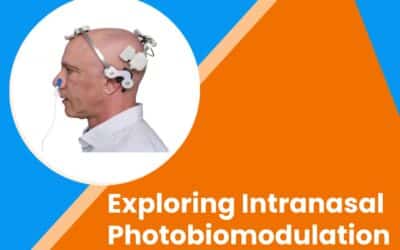Mental Health Treatment
Call Now
Mental Health Treatment in San Diego

Our Mental Health Treatment Program
Our outpatient mental health services include individual therapy, group therapy, family therapy, medication management, and other evidence-based treatments. We use a holistic approach to treatment, addressing the physical, emotional, and spiritual aspects of mental health to promote lasting recovery and wellness.
Program Components
Individual Therapy
Medication Management
Family Therapy
Process Groups
A Collaborative Approach to Care
Our outpatient mental health services are designed to be flexible and convenient, allowing individuals to receive the care they need while maintaining their daily routines and responsibilities. We offer daytime, evening, and weekend appointments to accommodate a wide range of schedules.

Specialized Mental Health Programs
Depression
Depression is one of the most treatable mental health conditions. Approximately 85% of people with depression who seek treatment eventually respond well. Treatments for Depression can include Psychotherapy, Antidepressant Medication, as well as complementary treatments like Biofeedback Therapy and Transcranial Magnetic Stimulation (TMS). Avoiding alcohol and other depressants is also helpful in mitigating depressive symptoms.
Trauma & PTSD
Post-traumatic stress disorder (PTSD) is a mental health issue that can develop after a traumatic event. The most effective treatment for PTSD combines medications like SSRIs or SNRIs and trauma-focused therapies. Trauma-focused therapies seek to reexamine the traumatic event. Some of these therapeutic modalities include Cognitive Processing therapy, Eye Movement Desensitization and Reprocessing (EMDR), and Prolonged Exposure Therapy.
Anxiety
There are many different types of anxiety disorders: panic disorder, phobias, separation anxiety, and general anxiety disorder (GAD). Treatment for anxiety disorders may include medication to help alleviate some of the symptoms. However, the most effective treatment has been proven to be psychotherapies like Cognitive Behavioral Therapy (CBT). Lifestyle changes like limiting caffeine exercising regularly and eating a healthy diet can also be effective.
Bipolar Disorder
Bipolar disorder is a chronic mood disorder that causes intense shifts in mood, energy levels, and behavior. Bipolar disorder is a lifelong condition, so treatment is a lifelong commitment. An effective treatment plan often includes a combination of psychotherapy, medication, and self-management strategies. Psychoeducation can also help a person with bipolar identify their triggers so they can intervene before an episode. Healthy habits like exercise, yoga, and meditation can also help.
Mental Health Treatment at Healthy Life Recovery
If you’re looking for a comprehensive and compassionate mental health treatment center in San Diego, look no further than Healthy Life Recovery. Our experienced and dedicated team is here to help you achieve lasting recovery and wellness.
Mental Health Blogs
Coping with Seasonal Depression in Sobriety
SAD and substance use disorders often intersect. Individuals may feel tempted to self-medicate with drugs or alcohol to escape the heaviness of depression. This is particularly risky during early recovery, where emotional regulation is still being rebuilt. Why SAD Can...
Shopping Addiction in Individuals with Bipolar Disorder and BPD
Addiction Treatment Programs for Pilots and their Families Table of Contents Shopping addiction, also known as compulsive buying disorder (CBD), is a behavioral condition that goes beyond occasional retail splurges. Characterized by an overwhelming urge to shop and a...
Neuro Gamma 4 Vielight: Exploring Intranasal Photobiomodulation
Image sourced from Research Gate (https://www.researchgate.net/figure/The-Vielight-Neuro-Gamma-in-use-The-stimulation-modules-consist-of-a-Nasal-Applicator_fig2_332527885) The Neuro Gamma 4 Vielight is a groundbreaking device that represents a significant leap forward...

Medically Reviewed By:
Dr. Sanjai Thankachen
Dr. Sanjai Thankachen graduated from Adichunchanagiri Institute of Medicine in 2000. He completed his residency in psychiatry in 2008 at Creedmoor Psychiatric Center in New York. Dr. Thankachen is currently working with Pacific Neuropsychiatric Specialists in an outpatient practice, as well as working at multiple in-patient psychiatric and medical units bringing his patients the most advanced healthcare treatment in psychiatry. Dr. Thankachen sees patients with an array of disorders, including depression, bipolar illness, schizophrenia, anxiety, and dementia-related problems.

Edited for Clinical Accuracy By:
Sean Leonard, Psychiatric Nurse Practitioner
Sean Leonard is a board-certified psychiatric nurse practitioner. He received his master’s degree in adult geriatric primary care nurse practitioner from Walden University and a second postmaster specialty in psychiatry mental health nurse practitioner from Rocky Mountain University. Sean has experience working in various diverse settings, including an outpatient clinic, inpatient detox and rehab, psychiatric emergency, and dual diagnosis programs. His specialty areas include substance abuse, depression, anxiety, mood disorders, PTSD, ADHD, and OCD.



